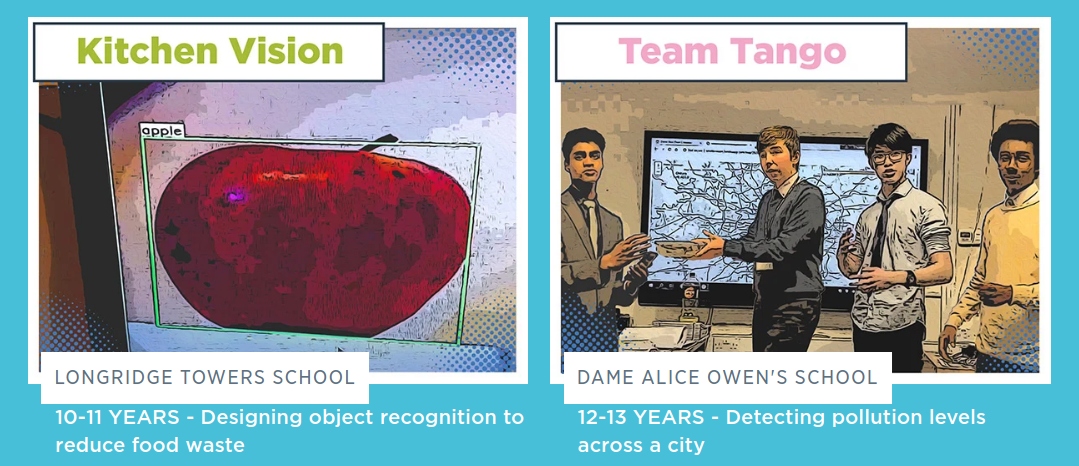PA’s 2020 Raspberry Pi schools competition looks to the future
by Alun WilliamsPA Consulting’s Raspberry Pi Competition awards took place virtually this year, due to the pandemic. It was a strange irony of the times, as this year’s theme addressed ‘creating the sustainable city of the future using a Raspberry Pi’.

The annual competition, now in its eighth year, challenges primary, secondary and college students across the UK to invent and create products using the Pi computer.
City of the future
Specifically, entrants to the 2020 competition were tasked to use their ingenuity to create a positive human future by designing the ‘sustainable city of the future’. Teams were asked to imagine a world where, for example, habitats are protected, travel is simple and pollution free or food is sustainably sourced with minimal waste. The winning team in each category will receive £1,000 prize money.
The 14 shortlisted teams’ entries were judged based on their video submissions which were shared with the expert judging panel.
The winners of the different categories were as follows.
The Primary school award, for academic years 4-6, went to St Mary’s School, of Horsham, for encouraging kids to be environmentally aware in school.
“This system monitors and visualises sustainable behaviours, creating a competitive league within the school and potentially between multiple schools. The system gathers sustainability readings from a variety of Pi sensing modules via a shared cloud database. Schools can choose the modules that highlight their needs, for example, reducing road traffic by encouraging cycling, or reducing energy consumption. Data is captured, and, as scores increase, the projected image becomes progressively greener.”
The Secondary school award for academic years 7-9, went to Reading School, for a project monitoring air quality.
“This device lets people access live data about pollution levels in their area from an app, helping to raise awareness of climate change and increasing pollution levels. The device is a 3D-printed box that contains the Raspberry Pi and a variety of sensors measuring air quality, which are entirely solar powered. Having the sensor allows people to see, via their phone, the pollution levels and avoid the highly polluted and unsafe areas. The aim of the device is to show users the data and in turn encourage them to switch to a more sustainable lifestyle such as using public transport or electric cars.”
The Secondary school award for academic years 10-11 went to Longridge Towers School, for designing an object recognition system to reduce food waste.
“The project investigates how object recognition could cut food waste. Small cameras could be placed around a kitchen – in a cupboard or above bins for example – and be connected to the Raspberry Pi, which can then recognise what groceries are in the kitchen and note if they end up in the bin. The system would email the homeowner to let them know what they’re low on and what they already have at home, so they don’t make unnecessary purchases when out shopping. It could also note when groceries are bought and estimate how long they will last – prompted by “use by” dates – and give the homeowner a gentle nudge to use food before it becomes inedible.”
The Sixth form and college award, for academic years 12-13, went to Dame Alice Owen’s School, for detecting pollution levels across a city.
“This project is a functional air pollution detector in the form of a handheld device. Users can plot pollution levels on an hourly map to provide detailed information to the public and researchers. This could allow authorities to focus efforts to improve sustainability and reduce emissions in the most affected areas and act as a reference point for research scientists to observe how pollution levels change over time. The Raspberry Pi is used to receive input values from the air quality detector and location inputs via Bluetooth from handheld devices. It also sends this data to a web server to plot a map of air pollution values.”
Video entries
“We are immensely proud to be holding these awards for the eighth year running, and once again really testing the ingenuity of hundreds of young people – aged 8 to 18 – from school and colleges in the UK,” said Anita Chandraker, innovation expert and Board member at PA Consulting.
“Of course, this year has been very different. Where normally our finalists would present their inventions to the judges at a physical awards day, we judged virtually using the videos submitted from the teams. Despite this, our judges were blown away by the creativity, originality and inventiveness of the teams in developing their ingenious solutions and their video entries.”
Congratulations to all the hard working finalists. Hopefully, 2021’s awards can return to a non-virtual status.
See also: PA’s Raspberry Pi schools competition tackles transport (2019)